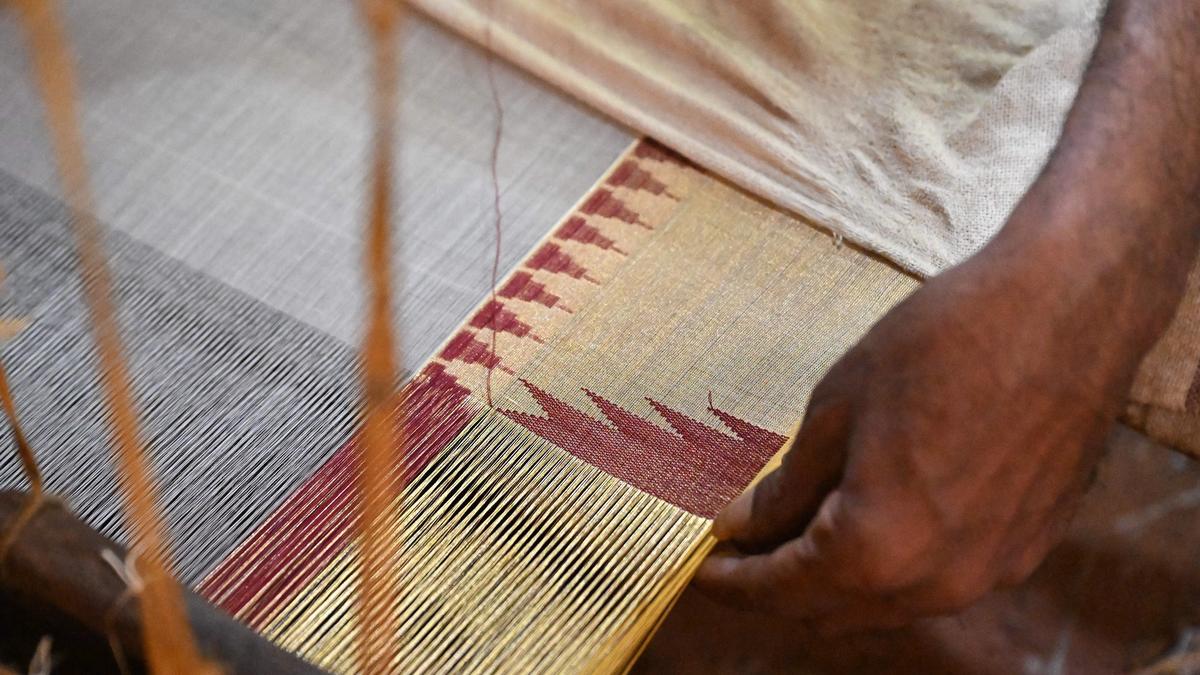
In frames | A town that weaves gold
The Hindu
Balaramapuram in Kerala holds a rich history going back to its roots in the princely state of Travancore and has secured a unique brand name for its handloom textiles
A town that took shape in stealth during a time of revolt within the princely state of Travancore roughly between 1798 and 1810, Balaramapuram in present-day Kerala has secured a unique brand name for its handloom dhotis and saris.
The town in Thiruvananthapuram district was named after a former ruler of Travancore, Avittam Thirunal Bala Rama Varma, who was instrumental in developing it as a handloom weaving hub.
Families of skilled handloom weavers were brought from parts of Salem and other small towns in modern-day Tamil Nadu to Travancore during his reign and given land and other resources to set up their weaving units. They were tasked specifically with making special handwoven cloth for the royal family.
Originally, skilled workers belonging to the Shaliya caste were brought in and soon a textile revolution started taking shape with Balaramapuram at its centre. Taking advantage of this growth, more settlers who had migrated to Balaramapuram for supporting jobs within the industry, slowly started learning the craft to set up their own small-scale units to cater to the market.
Today, powerlooms have taken over the industry, with even small home-based manufacturers forced to acquire powerlooms that are faster and can meet the seasonal sales demand.
Shaktivel, a craftsman from Coimbatore, migrated to Balaramapuram 15 years ago, enticed by the opportunities that the industry has offered for generations. Although he is a skilled handloom weaver, Shaktivel now works at a small-scale powerloom manufacturing unit with eight devices set up by a former traditional weaving family in Balaramapuram.
Soft texture

 Run 3 Space | Play Space Running Game
Run 3 Space | Play Space Running Game Traffic Jam 3D | Online Racing Game
Traffic Jam 3D | Online Racing Game Duck Hunt | Play Old Classic Game
Duck Hunt | Play Old Classic Game











